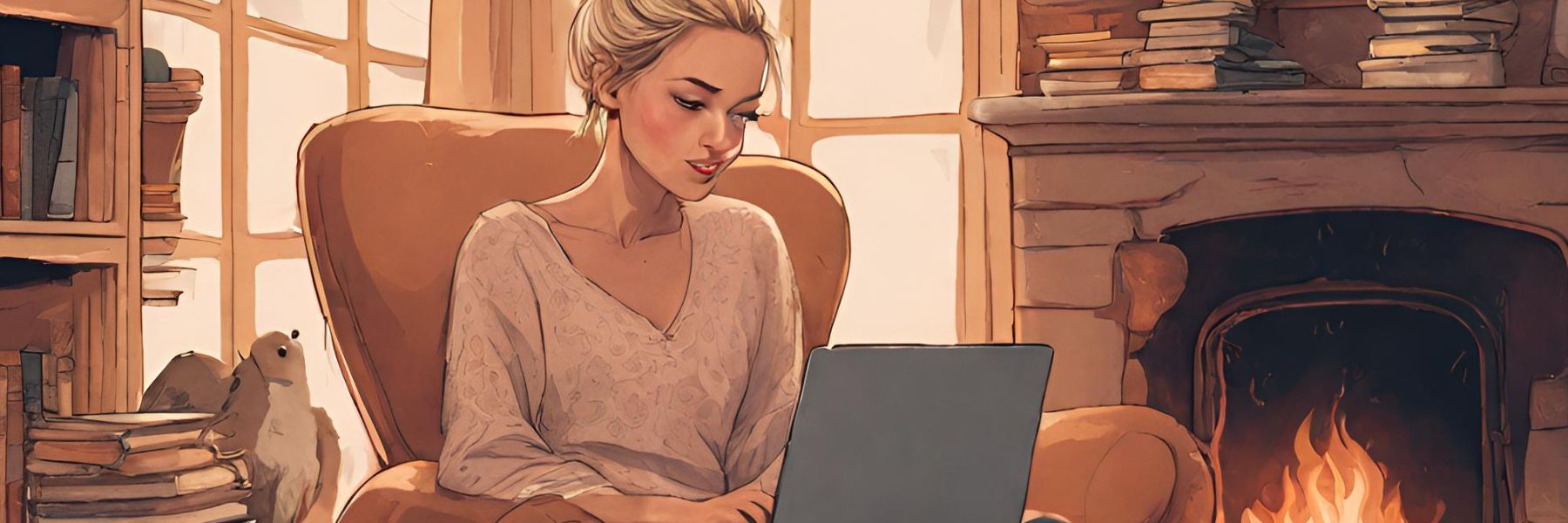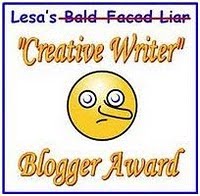|
Ghostwriting and copy-editing can be lucrative career choices for lovers of the written word. It can also be challenging and heartbreaking if you don’t follow the rules set down by those who have paved the way.
Writing, editing, and formatting a book is labor intensive. It not only takes time, it takes mental energy. For a full-time ghostwriter a novel can take 6 months or more. For a part-time ghostwriter, a year or more is reasonable. Ghostwriting can bring between $25,000.00 and $45,000.00 or it can bring nothing. Months of work, sweat, little sleep, and angst, can bring zip to your checking account and utterly ruin your mental health. How can that happen? Several years ago, my husband and I sold our business and headed to the foothills of California for a little rest and relaxation. Six months later, our medical insurance came due. Our costs had risen to over a thousand dollars per month. Grumpy and irritated, I decided it was time to return to work. I had written and published children’s books, did a little ghostwriting on a small scale, and wanted to return to the writing world instead of the corporate one. It wasn’t that I didn’t like being in business. I just wanted to spend my time exploring the creative side of my personality. Unfortunately, I had moved to a town with very few people and even less job opportunities. Six months later, I was perusing our local paper when two words stood out in stark relief: Author’s Assistant I applied for the job, which I thought would be a piece of cake. The position required I edit and clean the copy of my employer before it went out on the net. The first thing she handed me was a Christmas letter so full of typos and spelling errors, I felt sure she was testing me. I thought: Oh, well, it’s a job and it pays seventy-five percent of my medical insurance, and on top of that, I make fourteen dollars an hour to start which will fund my penny machine addiction and buy groceries. The low wages, I was told, were part of the pinecone tax one automatically assumes upon entry into the mountains of California. A month or so in and I was doing her scheduling, answering her phone calls, and even babysitting her daughter. She had another business just down the road with seven employees none of which I would meet until a year later at a disastrous Christmas party. One day, my employer had an idea. “I want to do a radio show. Make it happen.” “Okay,” I answered, then set about fulfilling her request. Within six months, I had created a radio show, and I was the new producer/director and she was the host. The system worked great. I loved being behind the scenes and she loved being in front. I grew to respect this woman and appreciated the choices and changes she had made in her life. I was happy, and even though I didn’t make much money, I loved my life in the mountains and the new job I’d found. In addition, I counted my employer as a friend and knew I was lucky. The company I had recently sold, employed between 20 and 30 men and women at one time. Over the years, this counted for hundreds of human beings from all walks of life. I heard from them the horror stories of being an underling. I always treated my employees with the utmost respect and since this was my first shot at being an actual employee, I was grateful to find an understanding, compassionate, employer. “You write books, don’t you,” she asked about nine months into our relationship. I nodded. Between writing a weekly radio show, booking guests, and having a timeline that went out six months, scheduling her appointments, writing ad copy for her other business, and now articles for the web, I didn’t write on a personal level anymore. By the time I got home, I was pooped and my fingers were tap-danced out. “I need you to complete this book I’m writing,” she finished. Internally, I cringed. I’d seen examples of her efforts and it wasn’t pretty, and I’d heard about the book, as it was the talk of the other office. The copy editor next to my cubicle had filled me in. Over several years, my employer had hired several writers to start and complete the book. She handed me the original and I nearly had apoplexy as the pages fluttered through my fingers. The manuscript, wrapped in a big black binder contained downloads from the Internet, with nothing but articles written by others, hand-circled with the ideas she liked. She said, “I’ll get you a better version,” and went about finding the latest person who had possession of the book. Shortly after, she fired the current writer and the next thing I knew, the manuscript was on my desk, littered with paragraphs that made little sense, inserts taken from the Internet and other writers, and only the first two pages were formatted into readable text. The box it came in crumbled in my hands. Consequently, I allowed myself to be suckered into feeling sorry for her and she expertly played into those feelings. I took possession of the manuscript and from that moment on became accountable for the project. I gave no thought to how much time and effort it would take to create a printable manuscript. I didn’t even ask for extra money thinking I could work on it between radio shows. Instead, my workload grew heavier and I spent an entire year obsessing on the book, working from home in the evenings, on weekends, and often in the middle of the night. Several months later, the copy-editor next to me quit. There was just the three of us in the office consisting of: the copy-editor, the bookkeeper, and me. Our employer spent her time between our office and the other business. I was given permission to hire another copy-editor. The one I chose was young, had written for a magazine, and had energy. Within weeks, I realized she not only wanted her job, but mine as well. Which, to be fair, must have seemed fun and exciting. She was young and filled with ambition while I was old enough to know that only working for a cause brings contentment. Not. We shared a few tense moments. I am a serial commalist and she isn’t. For those of you that don’t know, a serial commalist (a name I made up) prefers a comma after the word and in a list of items. I realize that people who write articles often leave off the comma due to production costs, but in books, commas are usually left in. It became an irritant between us. One year later, the manuscript was done. I handed it over to the formatter and the book was on its way to the printer. For a month I went back to producing radio shows, booking guests, writing articles, and generally catering to my employer’s whims which was fine by me, as long as I had trees in my backyard, and a lake I could walk to. Life was good without crowded freeways and smog. Sadly, once the trucks delivered the books, my employer a.k.a. friend, decided to do away with the writer of her beloved book. Using the excuse of how important my financial background was to the company, I was moved from my cozy little cubicle to the mailroom, which was one step away from the back door. It was often cold, and rain drifted in under the door, making me even more miserable. I was responsible for weighing and mailing the books because stamps were an important expense and I needed to keep costs under control. My friend the copy-editor, the non-serial commalist, became the booker of guests, and writer of radio shows, and articles. Her office was warm and carpeted while mine was wickedly austere with cement walls and flooring. Most of all, I missed having a window. Direct access to the garage and the mountain of books and other office supplies was a plus. I am not a quitter so I hung in, hoping things would change. I figured whatever feelings my employer had would fade once she saw what a dedicated employee I was. Besides, medical insurance was expensive and would eat through my savings long before I could collect Medicare. Two months later, my employer received notification that the book I had ghosted was up for an award. Three months later, during a delightful trip to New York with the family, she received the nomination. She brought the lovely statute back to the mailroom and let me hold it for one brief moment. Shortly after, I gave notice and two weeks later, I was gone. I had created a beautiful wonderful book that actually won an award, yet the human side of me wanted more. It needed recognition, or maybe, just a simple thank you and a bonus. Certainly, it didn’t warrant a position in the mailroom with cold cement and drafty doorways, did it? Was my self-esteem shattered? In a sense. Apparently, I had a great desire to be liked, even if it meant working 20 hours a day, half with no pay. That knowledge shocked and humbled me. I figured I needed to do a whole lot of personal work on myself. I also needed to learn how to value my time because only if I valued it would others. Did I walk away from the job I once loved? Without question and on occasion, I still miss it. I felt I was actually doing something, contributing to society in a unique and powerful way, but I’ve also learned there are other ways to contribute. I am driven not by ambition, but by rightful causes. Not by money, but by the need to assist others. Those are powerful things to learn about oneself. I also learned that sometimes, people are not what they seem. Vain glory can thrive within an imaginary shelter of love, compassion, and service. Sadly, those individuals with the greatest ambition and pride often get the job done. Who was responsible for the above scenario? Me. I let my emotions rule my head and forgot to be a professional. Other things I have learned: If possible, try not to get emotionally involved in a job where you are paid on an hourly basis. Never work for less than you are worth and maintain a professional distance. I know times are tough, but there is your self-esteem to consider. Value your time and others will too. Before ghostwriting, even if your current employer asks you, have a contract drawn up and make sure a lawyer reviews it. Know your rights and your obligations thoroughly. Define access to the author. The hardest part of ghostwriting is pinning the soon-to-be author down long enough to get an accurate history. Do NOT get shoved into unworkable timelines. Have it spelled out completely in the contract. My experience taught me that once the manuscript is finished, so are the relationships. You may want to remain friends, but people, being what they are, will likely see you as a threat. Let go and move on with your next project. It took time, but I finally let go. I dreamed a story that soon settled onto paper, and from it, Gemini Rising, a science fiction romance was born. I created the time to write my own novels, fed the researcher that lived within me, and pushed myself to higher heights. I freed my brain and found the willingness to create my own life in a way that made me proud. It is said through adversity come wisdom. True enough words. Without adversity, Gemini Rising may never have been written. Comments welcome! Louann Carroll is the author of Journeys, The Adventures of Leaf, and the Journeys series of children’s books. Her latest novel, Gemini Rising, is published through Crescent Moon Press at www.crescentmoonpress.com. Carroll’s website is www.louanncarrollbooks.weebly.com, or you can e-mail her at [email protected]. She is also available on Face Book. 10/19/2010 12:58:06 pm
When we say I wish you enough , we want the other persons to have a life filled with enough good things to sustain them. 10/25/2010 06:51:17 pm
Wonderful Weblog! Incredibly useful, I value each of the info that you simply shared with me incredibly significantly and I also bookmarked this on dig as well. Take care and I’ll be back again to examine extra inside long term. 10/26/2010 10:46:46 am
Don't part with your illusions. When they are gone you may still exist, but you have ceased to live. Comments are closed.
|
Sign up today for freebies and fun. Grab your chance at signed copies of my paperbacks and free e-books.
For Kobo coupons click here or copy and paste the link into your browser.
http://www.therawfeed.com/stores/kobobooks-com |
Proudly powered by Weebly




 RSS Feed
RSS Feed

